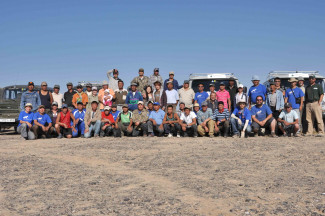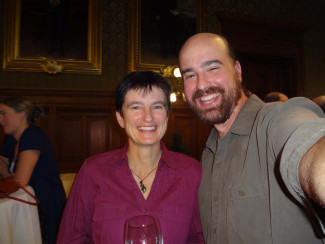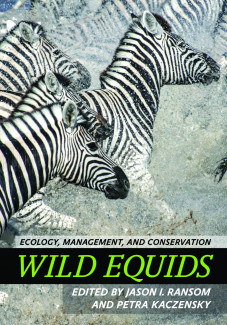
Johns Hopkins UniversityEst. 1876
America’s First Research University
From Counting Asses in the Gobi to Counting on Many Authors to Edit a Book on Wild Equids


None of us has ever published a book and so it was somewhat of an adventure seeing this product evolve from the planning through writing and putting the final touch on. With contributors spread over all continents (except Antarctica) and many involved in field work in remote areas, it was not always easy to reach everybody. But contributors made huge efforts to get back to us and deal with corrections, questions, and administrational requests. Their positive feedback kept us going and motivated and receiving an answer from remote places like the Mongolian Gobi was a great reminder of why we were doing this book: to help conserve the world’s remaining wild equids.
The issues covered in the book focus on ongoing initiatives and conservation concerns. While writing the book, the IUCN Red List status of most species has been updated, new reintroduction projects are being initiated (e.g. Przewalski’s horses in Orenburg, Russia) or discussed (e.g. Asiatic wild asses in Iran and Kazakhstan), conservation success on the one hand (e.g. Mountain zebras being proposed for down listing from CITES appendix I to II) and conservation challenges on the other (e.g. kulan in Turkmenistan having become extremely rare). Wild equids will keep inspiring human and their conservation and control will challenge society’s values - hopefully our book will act as a reference for the underlying biological facts and constrains and as a reminder for what is at stake.
Our advice for future authors is to find a topic you believe in and a group of people you know shares your enthusiasm for the topic. Working as an editorial team is also a huge advantage as you can share the burden of responsibilities of chasing after missing bits and pieces. As humans we have good and bad days and it helps to share some of it with a colleague involved in the same process. Overall this book has been a very rewarding process and holding the final product in our hands has been a very special moment.

Jason I. Ransom is a senior wildlife biologist with the US National Park Service and an affiliate faculty member at Colorado State University. Petra Kaczensky is a senior researcher at the University of Veterinary Medicine’s Research Institute of Wildlife Ecology in Vienna. Their book, Wild Equids: Ecology, Management, and Conservation is available now.



